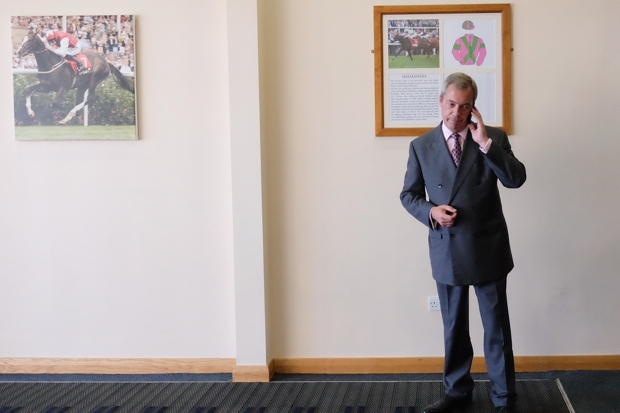Ukip’s conference last week featured some characteristically colourful characters, including a lady with a Nigel Farage tattoo on her arm (and, strangely, one of Robert Smith of The Cure on the other). Significantly, though, attendance was down on last year. Sebastian Payne asked what the point of the party is, now that the Brexit referendum is coming and will answer their existential question either way. Iain Martin at Cap X then predicted that the party had run its course.
It’s been a strange few months for the Kippers; a strong poll showing in May combined with a disappointing result, followed by Nigel Farage’s resignation and then un-resignation. Media attention has since focussed on the left’s own version of the ‘new politics’: Jeremy Corbyn’s new old Labour. Having grown from a libertarian single-issue protest party, Ukip has also become a victim of its own contradictions, with obvious ideological divisions between Red Ukip types like Patrick O’Flynn – who represent most of their voters – and the party’s only MP, the neo-Gladstonian liberal Douglas Carswell. Just on Friday the party’s biggest donor criticised Carswell, a pro-immigration optimist who doesn’t really fit in with a lot of what Ukip stands for.
So while lots of people think the party will implode, the polls show that they’re still on 16 per cent, which is about as high as they’ve ever been. The total lack of publicity over the past few months hasn’t done them any harm, it seems.
Back in 2011 I suggested that Ukip would top the 2014 euro poll and was given odds of 66/1 by Paddy Power, but I chickened out of putting money on it; I also ducked out of a bet offered by a leading political pollster that the Kippers would overtake the Lib Dems. I come from an austere Irish Catholic background and have always taken the view that gambling is a waste of good drinking money.
So let me suggest now that, whatever happens from here on in, Ukip will not fall below 10 per cent and will remain roughly where they are; even if Farage goes totally loopy and declares himself a god-emperor, they will stay a double-digit party. Furthermore Corbyn’s economic populism, whether it’s the ‘people’s quantitative easing’ or ‘people’s railways’, won’t make any difference. And the euro referendum won’t damage them either way, and defeat might even help.
Politics is increasingly about identity, and the future of politics in western Europe is that we have parties representing cosmopolitan liberals and parties representing (non-elite) majorities; whether it’s the Sweden Democrats, FN, Ukip, Danish People’s Party or the Party for Freedom, all poll somewhere between 15-25 per cent. Some ‘right-wing’ cosmopolitan parties might see open borders as an extension of free trade and global liberalism; other ‘left-wing’ ones may see it as a matter of global and racial justice and offer social democracy with an Islamist twist, but the major division will be how voters view the national question, and the recent migrant crisis will only entrench this trend.
One sign that this is a long-term trend is the fact that populist right-wing parties are increasingly ideologically aligned, when in the past anti-immigration groups across Europe were a shambolic reflection of each country’s different eccentric sub-cultures. You had some reactionary parties like the FN, openly neo-Nazi ones like the BNP, gay Nazis in Austria, Islamophobic libertarians in Holland and essentially boring, moderate groups in Denmark and Switzerland. In contrast, today there is an understood right-wing anti-globalisation spot on the political map (at least in western Europe; groups like Golden Dawn reflect the culture in eastern Europe).
People lament these new parties without appreciating that they are as much a feature of multiculturalism as chicken tikka masala, while old-fashioned concepts like ‘liberal’ and ‘conservative’ are really products of previously homogenous societies. Such clear ideological divisions do not arise in multicultural societies, where political identity is too often decided by whether a man worships on Friday, Saturday or Sunday. To paraphrase a man who understood the politics of identity, Ukip haven’t gone away you know.







Comments